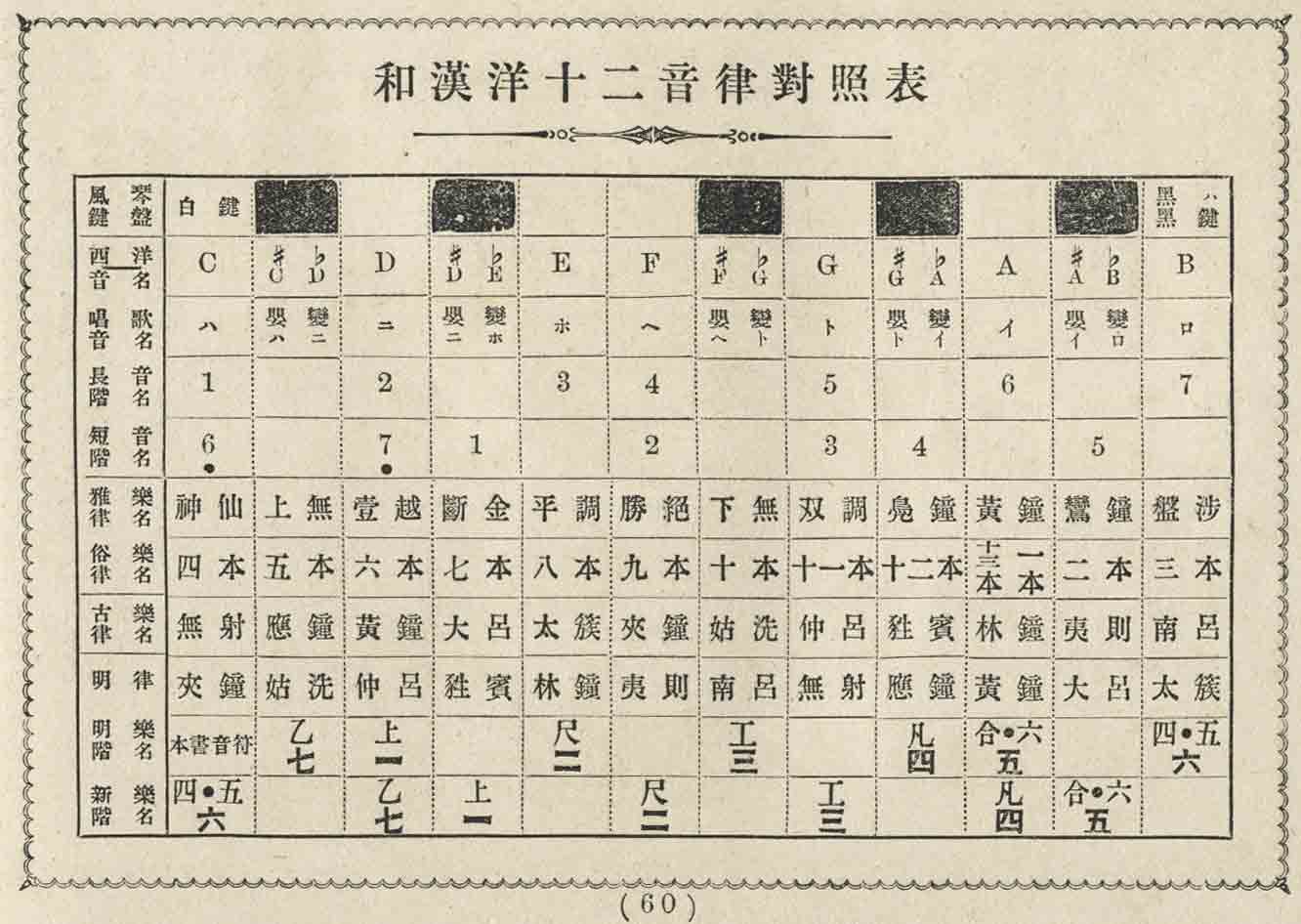Difference between revisions of "Language/Multiple-languages/Vocabulary/Musical-Notes-in-Many-Languages"
< Language | Multiple-languages | Vocabulary
Jump to navigation
Jump to search
| Line 8: | Line 8: | ||
In the table below, you will learn the system used for several conventions. | In the table below, you will learn the system used for several conventions. | ||
==Western chromatic scale== | |||
<blockquote>Feel free to add more languages in the table below (by editing this wiki page):</blockquote> | <blockquote>Feel free to add more languages in the table below (by editing this wiki page):</blockquote> | ||
{| class="wikitable" | {| class="wikitable" | ||
!Bengali | !Bengali | ||
|সা | |সা | ||
| Line 281: | Line 278: | ||
| | | | ||
|ที | |ที | ||
| | |} | ||
==Chinese chromatic scale== | ==Chinese chromatic scale== | ||
| | {| class="wikitable" | ||
!Chinese | !Chinese | ||
|黃鐘 | |黃鐘 | ||
Revision as of 19:16, 29 May 2022
How to write musical notes in different languages
Music is also said to be a language on its own.
In most of the romance language speaking countries (Spain, Portugal, Italy, France, etc.) music notes are named DO, RE, MI, FA, SOL, LA, SI while in some other countries each note is named with a letter C, D, E, F, G, A, B.
In the table below, you will learn the system used for several conventions.
Western chromatic scale
Feel free to add more languages in the table below (by editing this wiki page):
| Bengali | সা | ঋ | রে | জ্ঞ | গ | ম | হ্ম | প | দ | ধ | ণ | নি |
|---|---|---|---|---|---|---|---|---|---|---|---|---|
| Chinese | ||||||||||||
| Dutch | C | Cis
Des |
D | Dis
Es |
E | F | Fis
Ges |
G | Gis
As |
A | Ais
Bes |
B |
| English | C | C-sharp
D-flat |
D | D-sharp
E-flat |
E | F | F sharp
G flat |
G | G sharp
A flat |
A | A sharp
B flat |
B |
| French | do | ré | mi | fa | sol | la | si | |||||
| German | C | Cis
Des |
D | Dis
Es |
E | F | Fis
Ges |
G | Gis
As |
A | Ais
B |
H |
| Hindi | सा | रे॒ | रे | ग॒ | ग | म | म॑ | प | ध॒ | ध | नि॒ | नि |
| Japanese | ハ | 嬰ハ
変ニ |
ニ | 嬰ニ
変ホ |
ホ | ヘ | 嬰へ
変ト |
ト | 嬰ト
変イ |
イ | 嬰イ
変ロ |
ロ |
| ド | レ | ミ | ファ | ソル | ラ | シ | ||||||
| Korean | 다 | 라 | 마 | 바 | 사 | 가 | 나 | |||||
| 도 | 레 | 미 | 파 | 솔 | 라 | 시 | ||||||
| Latin | do | do diesis
re bemolle |
re | re diesis
mi bemolle |
mi | fa | fa diesis
sol bemolle |
sol | sol diesis
la bemolle |
la | la diesis
si bemolle |
si |
| Modern Greek | ντο | ρε | μι | φα | σολ | λα | σι | |||||
| Portuguese | dó | ré | mi | fá | sol | lá | si | |||||
| Russian | до | до-дие́з | ре | ми | фа | соль | ля | си | ||||
| Swedish | C | Ciss
Dess |
D | Diss
Ess |
E | F | Fiss
Gess |
G | Giss
Ass |
A | Aiss
Bess |
H |
| Thai | โด | เร | มี | ฟา | ซอล | ลา | ที |
Chinese chromatic scale
| Chinese | 黃鐘 | 大呂 | 太簇 | 夾鐘 | 姑洗 | 仲呂 | 蕤賓 | 林鐘 | 夷則 | 南呂 | 無射 | 應鐘 |
|---|---|---|---|---|---|---|---|---|---|---|---|---|
| Japanese | 壱越 | 断金 | 平調 | 勝絶 | 下無 | 双調 | 鳧鐘 | 黄鐘 | 鸞鏡 | 盤渉 | 神仙 | 上無 |
| Korean | 黃鍾 | 大呂 | 太簇 | 夾鐘 | 姑洗 | 仲呂 | 蕤賓 | 林鐘 | 夷則 | 南呂 | 無射 | 應鐘 |
The Music Alphabet
